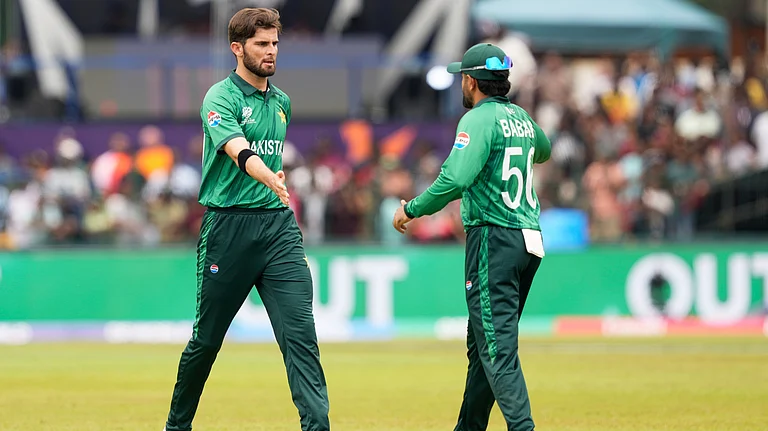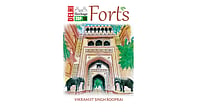The title sounds right, with the weighty ring to it—though I was in a state of confusion before I started the book. Somewhere at the back of my mind was the matter of a play—was that what all the fuss was about? When the book landed in my hands, it had a different look to it, pale ochre with a gold edge that talked about a special rehearsal edition and, though J.K. Rowling was the main author, there were two sub-authors—or should I say playwrights? After all that midnight bookstorming, I was foxed. This was not what I expected, where were the multi-coloured bands, the quirky illustration? But then, I settled down to the fact that this was the rehearsal script for a play that will be put on at the West End, to be followed by the proper script.
To say it in canonical Hindi film terms, this story started bees saal baad; well, 22 years later, with Hermione as minister of magic and Harry working in the ministry as law enforcement officer, while Ron runs his joke shop with his brothers. The core of the play is Albus Severus Potter, who, for reasons best known to him, chooses to make friends with Draco Malfoy’s son Scorpius, against the warnings of his ambitious cousin Rose. It’s a beginning that seems to sit well, charging the barriers to board the Hogwarts Express, but then things subtly signal change. Albus remembers that his father drove home the importance of friends and, a misfit despite himself, chooses the one person no Potter would have been seen dead with. He also finds himself sorted into Slytherin, which perhaps is a good thing from the story point of view, since quite obviously Slytherins can’t all be evil—why have them as a house if they were?
It’s quite obvious that the play is a partly self-referential act, a coming to terms with Harry Potter’s legacy and going against stereotypes. Twenty-two years later, nothing is as it should be. Scorpius is a geek and Albus can’t play Quidditch to save his life. Things are different but what, the writers seem to ask, if they were radically different? The ministry of magic has unearthed a forbidden time-turner and that is where the problems begin. Albus wants to prove a point to his father and he thinks time-travel might be just the way to do it.
Theories of time travel are well established by now, with the Back to the Future films as a case in point. Travelling either back or forth in time has a butterfly effect. There are several experiments with this kind of chaos theory throughout the play, all of which have their own kinds of effect and which would undoubtedly make for spectacular theatre. The stage directions are equally important and include magic bookcases, not to mention parseltongue whispers at crucial moments, indicating that Harry’s middle-aged existence is in for a rude shock. His scar is aching again and nasty rumours are on the loose. Matching the Muggle world’s global warming signs are the movements of trolls and werewolves in the magical world. Evil too is on the loose and possibly the Dark Lord has a child.
The Cursed Child brings back all the darkness that Rowling let loose in her novels with increasing intensity, balancing it with moments of loyalty and love. Of course, all through this was my wondering whether she would return to the novels ever and why she chose not to leave this one as a co-written script. Not all of it dovetails neatly with the Harry Potter universe and I was left with a lot of questions—who, for example, was the cursed child? I could think of at least three. Why bring in all the shifts and changes in time? Two would have done it. I could have done with less of the permutations and combinations of families too—and possibly even without Panju—even though they do open up possibilities for continuations of a dramatic or novelistic sort.
The Word
Now that the play of the Cursed Child is out, a ‘special rehearsal edition’ will hit bookstores around early 2017, followed by a ‘definitive edition’.


























